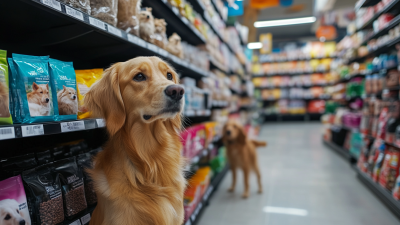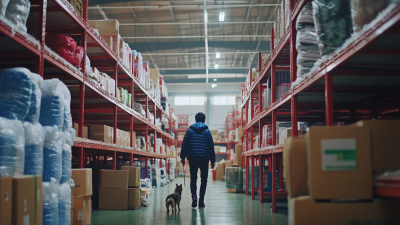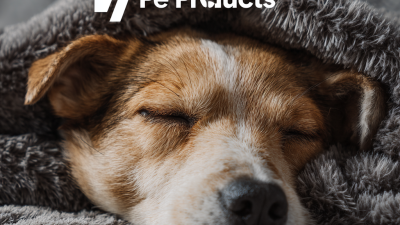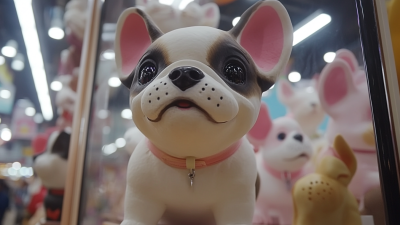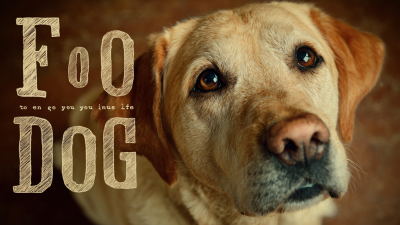In recent years, the pet supply industry has undergone a significant transformation, shifting towards innovations that promote sustainable living. According to a report by Grand View Research, the global pet supplies market is projected to reach $269.9 billion by 2025, driven by an increasing pet ownership and an enhanced focus on eco-friendly products. As consumers become more aware of environmental issues, the demand for sustainably sourced pet supplies is on the rise. This trend presents both challenges and opportunities for manufacturers, who must innovate to meet the expectations of a more environmentally conscious audience. Companies are now exploring biodegradable materials, recyclable packaging, and sustainable production processes, highlighting a commitment to protecting the planet while catering to the needs of pet owners.

As we delve deeper into the future of pet supply innovations, it is clear that the industry must tackle these Problems with Pet Supply in order to align with a sustainable lifestyle and build a more responsible marketplace.
The pet supply industry is experiencing a significant transformation as companies increasingly prioritize sustainable materials in their products. According to a recent report by Market Research Future, the global market for eco-friendly pet products is projected to grow at a CAGR of 7.36% between 2020 and 2026, highlighting a strong consumer demand for sustainable options. This shift is driven by a growing awareness of environmental issues and a desire among pet owners to align their purchases with their values.
Innovative eco-friendly materials are at the forefront of this sustainable transformation. For instance, brands are now utilizing recycled plastics, organic cotton, and hemp fibers to create collars, leashes, and toys that reduce environmental impact. A study by Nielsen found that 73% of millennials are willing to pay more for sustainable products, indicating a ripe market for these innovations.
Furthermore, biodegradable waste bags and compostable pet food packaging are revolutionizing the way pet owners manage waste, contributing to a circular economy that minimizes landfill contributions. As the industry evolves, we can expect even more creative solutions that cater to both pet needs and the planet’s health.
As the pet supply industry continues to evolve, smart technology plays a pivotal role in enhancing pet care while promoting environmental responsibility. According to a report by Grand View Research, the global smart pet collar market alone is expected to reach $2.1 billion by 2027, highlighting a growing consumer preference for tech-integrated pet products. These collars not only track location but also monitor health metrics, enabling pet owners to provide better care and timely interventions for their furry friends.
Moreover, sustainable innovations in pet supplies are gaining traction. A recent survey by Pet Industry Disruptors found that 63% of pet owners are willing to pay more for eco-friendly products. This trend is fueling the development of biodegradable waste bags, eco-conscious toys, and smart feeders that minimize food waste. By embracing advanced technology and sustainable materials, the pet industry is not only enhancing the relationship between pets and their owners but also taking significant steps toward minimizing its ecological footprint. As more companies integrate these innovations, we can expect a greener, smarter future for pet care that aligns with the values of conscious consumers.

The pet supply industry is witnessing a significant transformation as consumers increasingly gravitate towards sustainable options. The rise of subscription services for eco-friendly pet products is a trend that not only offers convenience but also aligns with the values of environmentally conscious pet owners. According to a recent report from Grand View Research, the global pet subscription box market is expected to reach $4.8 billion by 2025, growing at a CAGR of 15.2%. This surge indicates a growing preference for hassle-free shopping experiences that also prioritize sustainability.
Subscription services allow pet owners to access a curated selection of sustainable products, ranging from organic food to recycled toys, delivered straight to their door. A survey by Nielsen found that 62% of pet owners consider eco-friendliness when purchasing pet supplies, highlighting a shift in consumer priorities. These services often incorporate biodegradable packaging and renewable resources, making it easier for consumers to make responsible choices without compromising on quality or convenience. As the demand for sustainable products rises, companies that embrace this model are likely to capture a significant share of the burgeoning pet care market.
As pet ownership continues to rise, so does the demand for sustainable pet supplies, pushing brands to innovate with eco-friendly materials and practices. A recent report from the American Pet Products Association (APPA) revealed that the pet industry is projected to reach a staggering $97.1 billion by 2023, creating an urgent need for environmentally conscious choices. One of the most significant shifts in this industry is the introduction of revolutionary eco-labels, which help consumers identify products that truly adhere to sustainable practices.
When selecting pet supplies, look for certifications such as the Global Organic Textile Standard (GOTS) or the Forest Stewardship Council (FSC). According to a study by Nielsen, 66% of global consumers are willing to pay more for sustainably produced goods. This growing awareness bolsters the importance of understanding what eco-labels genuinely represent, as some may be misleading or lack stringent criteria. Choosing products with verified eco-labels not only supports the environment but also ensures that your pet's health and well-being are prioritized, creating a win-win scenario for both pets and their owners.
In today’s world, pet ownership comes with a unique set of responsibilities, especially when it comes to sustainability. Engaging pet owners in sustainable practices not only benefits the environment but also fosters a sense of community. One effective way to achieve this is by hosting local workshops that educate pet owners about eco-friendly products and practices. Engaging with neighbors and sharing experiences can inspire others to adopt sustainable habits, such as choosing biodegradable pet waste bags or selecting eco-conscious pet food brands.

Tips: Start small by introducing a “green pet day” in your community where pet owners can bring their pets and learn about sustainable practices. Set up booths that showcase products made from recycled materials or offer discounts on environmentally friendly pet supplies. Additionally, consider creating a social media group to share resources, tips, and local meet-ups focused on sustainability in pet care. This fosters an interactive platform for learning and discussions about best practices.
Another key aspect is the importance of choosing sustainable pet products. Pet owners can research and support companies that prioritize environmentally friendly materials and ethical manufacturing processes. This not only reduces their carbon footprint but also encourages the market to shift towards more sustainable options. By actively participating in sustainable living, pet owners can lead by example, inspiring others in their community to follow suit.
